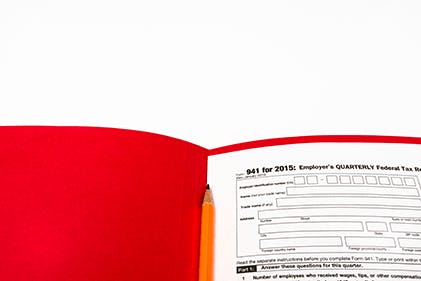How and When To Deposit Employment Taxes
As all payroll professionals know, federal income tax withheld must be deposited at the employee and employer level for social security and Medicare.

As all payroll professionals know, federal income tax withheld must be deposited at the employee and employer level for social security and Medicare. But how and when does a payroll person do this? Here’s a quick breakdown.
Firstly, there are two schedules for depositing, semi-monthly and monthly. Under the monthly schedule, employers must deposit their employment taxes by the 15 day of the following month. Those following the semi-monthly system, must deposit employment taxes for payments made on Wednesday, Thursday, or Friday by the FOLLOWING Wednesday. If payments are made on a Saturday, Sunday, Monday, or Tuesday, employment taxes must be deposited by the following FRIDAY.
A quick review of Publication 15 from the Internal Revenue Service (IRS) can alert an employer on which schedule he or she must use. It is determined by the total of an employer’s tax liability reported on Form 941 during a lookback period. Forms like this are used to report quarterly and annual payments. Here is a description of Form 941 and others used for depositing withheld income tax for BOTH the employee and employer.
Form 941: Employer’s Quarterly Federal Tax Return. This is used to report income taxes, social security, and Medicare tax withheld from each employee’s paycheck and to pay the employer’s portion of FICA – a combination of Medicare and social security.
Form 943: Employer’s Annual Federal Tax Return for Agricultural Employees. This form is used for anyone who pays one or more farm workers, when that worker’s wages were subject to FICA.
Form 944: Employer’s Annual Federal Tax Return. This form is used for small employers – whose combined withheld federal income taxes are $1,000 or less. These small employers only deposit taxes once a year.
Form 945: Annual Return of Withheld Federal Income Tax. This form is used to report withheld income tax from non-payroll payments. Examples include taxable income such as gambling winnings, or Indian gaming profits. Other examples of non-payroll payments are pensions and backup withholding.
Another important payment only employers must make (i.e. does not get removed from an employee’s paycheck) is Federal Unemployment Taxes or FUTA tax. This is reported by filing out and depositing Form 940 – which is an Employer’s Annual Federal Unemployment (FUTA) Tax Return. FUTA helps pay for unemployment compensation to workers who’ve lost jobs. This is a quarterly filing.
Form 940, Form 943, Form 944, and Form 945 are all due by January 31 of the upcoming year. Form 941 – which has a quarterly schedule – is due by April 30, July 31, October, and January 31 or whatever the fourth quarter of the previous year ends on.
Keep reading: related insights
Payroll Insights Newsletter
Subscribe to our quarterly newsletter for exclusive payroll insights.
